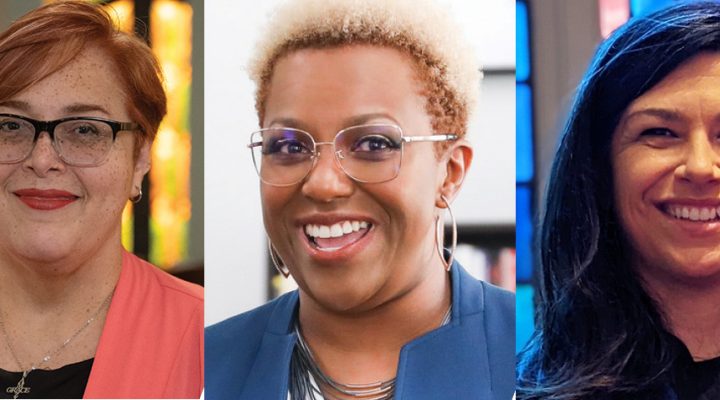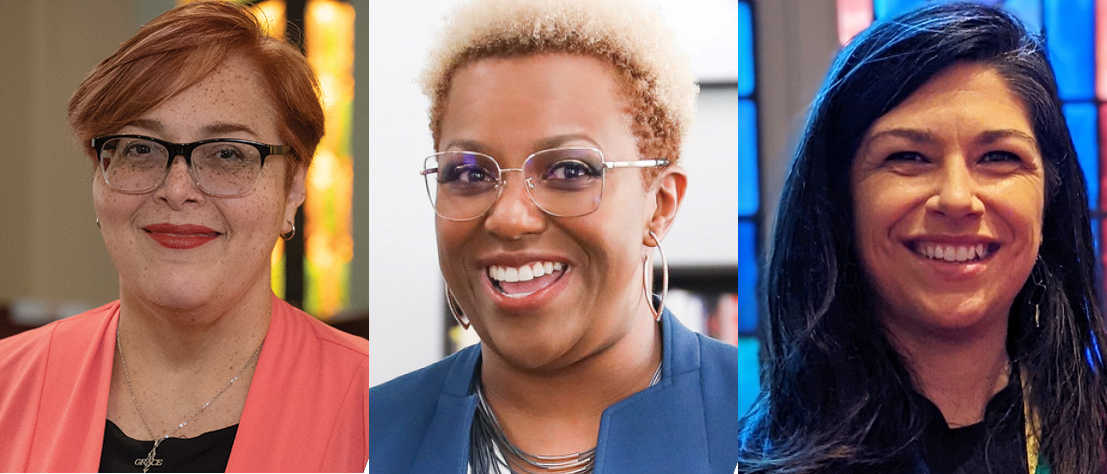The national media won’t be on hand, and there aren’t likely to be hot debates over women in ministry when the Cooperative Baptist Fellowship gathers in Atlanta next week for its General Assembly.
The largest of two breakaway groups from the Southern Baptist Convention’s “conservative resurgence,” CBF operates mainly outside the spotlight even when more than 1,300 participants show up for the annual gathering.
That’s one-tenth of turnout at this year’s SBC annual meeting in New Orleans.
It’s not just CBF itself that gathers but also a constellation of loosely connected enterprises — including Baptist News Global — supported by the churches and people who are part of what insiders call “The Fellowship.”
Unlike the SBC, CBF has no agencies or institutions. It owns no seminaries, no publishing houses, no ethics agencies. Its Global Missions enterprise is part of the central administration, not a separate agency. (BNG receives no funding from CBF and is fully independent in its governance.)
CBF’s founders in 1991 intentionally steered away from the kinds of things that tore them apart from their home in the SBC: There are no resolutions adopted, there is no campaigning for elected office, there are no agency reports to pick apart.
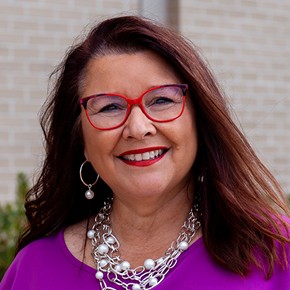
Debbie McDaniel
Also unlike the SBC, women naturally play a prominent role in leadership of CBF and in its public worship. This year, the top elected official, called the “moderator,” is a woman, Debbie McDaniel, who also is a deacon in her home church, First Baptist of Huntsville, Ala.
Three women will be among the preachers at CBF worship events — pastor and church planter Latonya Agard, pastor and missions leader Laura Ayala, and pastor Kat Kimmel.
And on Thursday night of the assembly, hundreds of participants will gather for a dinner launching the first of several celebrations of the 40th anniversary of Baptist Women in Ministry. BWIM was formed during the early days of the previous struggle within the SBC, when the ordination of women was a controversy the first time. Although closely identified with CBF, BWIM is an independent organization that also relates to all kinds of Baptists — including some of those SBC women now targeted for exclusion.
Just two weeks after the SBC took steps to all but eliminate the possibility of women being given the title “pastor,” CBF will carry on with its founding belief that God calls women and men equally to ministry.
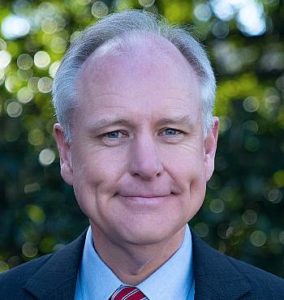
Paul Baxley
A statement released last week by CBF Executive Coordinator Paul Baxley and McDaniel said, “The Cooperative Baptist Fellowship holds deeply the conviction that God calls women to all places of leadership and service in the lives of congregations and in our denominational community.”
Although not all CBF churches ordain women or have women preach, the network of churches has agreed local church autonomy will be its rule. While CBF views female leadership as normative, its churches are not required to ordain or employ women.
Last week’s statement from Baxley and McDaniel added: “As a Baptist denominational community, our calling is not to police the actions of congregations; instead, we strive to be a fellowship in which congregations and their leaders learn from each other, encourage one another, and become instruments of God’s grace to each other as a real priesthood of all believers.”
The closest CBF has come to “controversy” in recent years involved its 2018 discernment process related to LGBTQ inclusion and hiring. No one got all they wanted in the end, with CBF again recognizing there is significant diversity of opinion among its churches and people.
What outsiders might not understand is that affirming women in ministry does not automatically equate with affirming full LGBTQ inclusion. Some “moderate” Baptists are fully on board with women in church leadership but not on board with ordaining or hiring LGBTQ Christians. Other “moderate” and “progressive” Baptists are fully on board with both.
A major difference between CBF churches and SBC churches is that few, if any, CBF churches would deny the personhood or faith of LGBTQ Christians.
A major difference between CBF churches and SBC churches is that few, if any, CBF churches would deny the personhood or faith of LGBTQ Christians. Thus, CBF churches mainly fall in the categories of “welcoming but not affirming” and “welcoming and affirming.”
Straddling that gap is an autonomous group known as the Association of Welcoming and Affirming Baptists. AWAB transcends Baptist denominations and counts among its members some CBF churches, some American Baptist churches and some international churches.
What’s notable this year is that for the first time AWAB will hold an event on-site during CBF General Assembly — independently sponsored as are most congruent events.
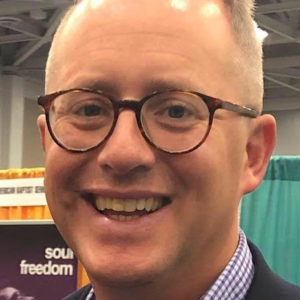
Brian Henderson
Brian Henderson, executive director of AWAB, noted the 50-year-old organization has worked among American Baptist churches for 30 years and more recently has found an “overwhelmingly warm welcome” among some CBF churches.
On Wednesday, June 28, at 4 p.m., AWAB will host a 50th anniversary reception at the Atlanta Hyatt Regency featuring a performance by the Atlanta Gay Men’s Chorus. The group also will give its Randle R. Mixon Award for Christian Service to George Mason, pastor emeritus of Wilshire Baptist Church in Dallas. Wilshire is the largest and most nationally visible church in CBF life to have taken a public stance of full inclusion.
The four days of activities around General Assembly will include breakfasts, lunches, dinners and receptions for several dozen independent groups, from seminaries and divinity schools to ethnic fellowships and a variety of nonprofit ministries like BNG.
Separate functions will be offered for each state or regional fellowship that’s part of the CBF family. And a slate of “learning labs” will train pastors and lay leaders in everything from issues of social justice to church programming. One learning lab will offer specific advice for female clergy negotiating employee benefits.
Some business will be conducted, but in a manner laconic in comparison to the SBC’s jockeying for microphones and parliamentary procedure. Notably, this year CBF participants will be asked to approve a $17 million budget that calls for a slight increase in income. Participants also will witness the commissioning of five new Global Missions personnel.

